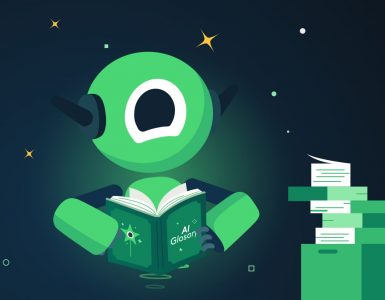The hospitality industry faces a double-whammy talent challenge: it’s hard to recruit people, and it’s hard to keep people. More than three-quarters of hotels are experiencing a staffing shortage. The leisure and hospitality industry has the highest quit rates of all industries, according to the U.S. Chamber of Commerce. Leading employers are rising to the challenge and preparing for a future where AI will make the hospitality recruitment process better for both employers and potential employees.
This article describes the challenges in hiring in the hospitality sector, and how artificial intelligence will help employers solve them. It includes:
- Opportunities and challenges in hospitality recruitment
- Technology to help hospitality hiring
- How AI will reshape hospitality recruiting
Opportunities and challenges in hospitality recruitment
Hospitality accounts for about 1 in 25 jobs in the U.S. The industry offers the opportunity for a great career, often without requiring a college degree.
At the same time, it has challenges that, while found in other industries, are more pronounced in the hospitality sector. These include:
- A slow embrace of certain hiring practices. Hospitality lags in its use of referrals and internal hires, for example. In its landmark Recruiting Benchmarks 2025 Report, SmartRecruiters found that only 2% of hospital hires came from referrals, and 3% from internal mobility.
- Sometimes irregular or overnight hours, such as in some hotel jobs
- The after-effects of the COVID-19 pandemic, which caused some people to reassess their careers and seek more stable job opportunities
- The short employee lifecycle due to high turnover
- The need for rapid high-volume recruiting for peak periods
- The very high importance of soft skills for customer service roles – traits such as empathy, communication, problem-solving, and emotional intelligence
- Diversity needs, such as a hotel restaurant seeking people with expertise in sushi-making, or a hotel front desk seeking people who seek Spanish, English, or Mandarin
Technology to help hospitality hiring
Let’s take a look at some of the tactics that hotels have found successful when addressing their talent challenges.
Surfacing relevant applicants faster with AI-based candidate matching
Many applicant tracking systems now offer AI-based tools that harness the power of machine learning to match candidate skills to the job description based on a validated skills taxonomy. This helps hotels broaden their candidate pools by showing them candidates who have relevant experience (such as customer service) from another industry.
Communicating with candidates via SMS or WhatsApp
Candidates for many hospitality jobs are less likely to conduct their job search from a computer or use email frequently, so it’s important to offer the option to communicate through mobile messaging. It helps when the entire hiring team can view the text-based communication on SMS or WhatsApp in the applicant tracking system (ATS) candidate inbox.
Centralizing job board contracts for streamlined posting
With hundreds of job boards available, and at least 20 specific to hospitality recruiting, managing and posting jobs manually is a time-consuming task. Using a modern ATS with a leading-edge distribution product lets you post everywhere instantly with one click.
Using a CRM for seasonal and local hiring
Just like hotels advertise to guests months in advance of peak travel dates, hotel managers need to source candidates in the preseason hiring period to be ready to fill roles. A best-of-breed candidate relationship management system can help reduce your recruitment marketing spend by allowing you to collect and nurture interested candidates year-round, and re-hire previous seasonal employees.
How AI will reshape hospitality recruiting
The use of artificial intelligence will play a significant role in addressing the staffing shortages found in the 76% of hotels mentioned at the outset.
“Technology, especially AI, is transforming hospitality recruitment,” The Caterer.com says. “For businesses still behind in AI adoption, this gap could result in losing talent to more tech-savvy competitors. To stay competitive, employers should invest in AI now, using it to streamline recruitment and improve the candidate experience.”
Jody Ordioni, CEO of the agency Brandemix, helped a high-end luxury resort chain fill 500 roles in 45 days, across housekeeping, bartending, facilities maintenance, front-of-house, back of the house, and more.
“With a redesigned careers website, digital ads, retargeting text messaging, and on-the-spot offers, we delivered great results,” Ordioni says. “But I wish we had AI to take it even further … real-time matching would have paired candidates with the right hiring managers instantly. We moved fast, hired effectively, and delivered a great candidate experience with the tools we had—but AI would have made it even better.”
AI tools like Winston will make hospitality recruitment faster and reduce work for decentralized hiring teams. In the months to come, recruiters and hiring managers will see a game-changing display of the power of AI. Here are some of the improvements that hospitality recruitment teams can look forward to:
Conversational AI improves the candidate experience
Job prospects who have questions about working in a hotel’s multiple bars and restaurants will be able to have a human-like conversation with an AI-powered chatbot. Candidates will not only get their questions answered but also receive additional videos and other materials, such as blogs about what it’s like to work in the different eateries. They’ll able to keep updated on the hiring process all within a natural-language chat interface.
AI-driven screening identifies best-fit candidate faster
AI-based screening technology will help weed out people who aren’t a good fit based on pre-defined, verifiable criteria. By surfacing the best-fit candidates faster, it will greatly improve the ratio of qualified applicants to requisitions for recruiters and hiring managers.
AI agents build pipelines for high-volume recruiters
An AI Agent will notice, for example, that a recruiter just opened up a requisition for front-desk staff in one area of Maui. It will be able to automatically search past applicants for good matches to the newly opened job. It could even go out and contact these candidates, see if they’re still interested, ask them a couple of questions, and set up interviews. If and when the pipeline gets low, the technology will be able to pull in additional prospects and replenish the pipeline.
Intelligent scheduling reduces manual tasks
Right now, a hospitality recruiter can easily spend the majority of their day on non-recruiting tasks. This will change dramatically. With all the back-and-forth, including potential cancellations and reschedules, setting up a single interview can take 30 minutes or more. Multiply that by thousands of job candidates, and the wasted time and costs can be enormous. SmartRecruiters’ advanced scheduling tools make the process even smoother than today’s “calendaring” tools. The technology will know the preferences (such as 15-minute breaks between meetings or only five interviews a day) of each member of a hiring team and schedule interviews according to these parameters.
“AI won’t replace the human touch,” Ordioni says. “It will clear the path for better conversations and faster decisions.”
We are tremendously excited about the path forward. Get in touch if you’d like to learn more about SmartRecruiters and how AI will improve hospitality recruiting.






